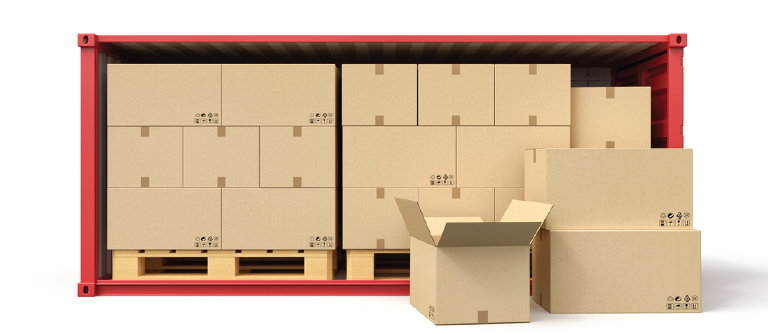Finding the right freight shipping approach is necessary for businesses in today’s globalized world. Full container load (FCL) stands out as one of the most efficient ways to transport your goods worldwide.
Businesses of varied scales and countless industries benefit from this innovative shipping approach. There are many reasons that make full container load (FCL) shipping a preferable choice for large shipments.
So, if you are also looking to scale your business, finding the right shipping method is crucial. Continue reading to learn more about full container loads (FCL) and determine if this is the right choice for you.
Understanding What Full Container Load (FCL) Shipping is All About
Full container load, also commonly known as FCL, is a new, innovative approach to getting your goods to a customer. In this method, you can transport your goods in an entire dedicated container. As a result, handling risks are reduced significantly since your goods will occupy the entire container. You can consider a full container load (FCL) shipping for your business if:
Ship large quantities of goods
Are looking to keep transit time at a minimum
Need additional control over your logistics
Do We Need Any Documents for Full Container Load (FCL) Shipping?
Transporting your goods around the world means dealing with many documents. The same happens with full container load (FCL) shipping, where you need comprehensive documentation to get things right. Here is a breakdown of some of the most important of these documents:
Commercial Invoice: You will first need a commercial invoice listing all goods and their value. The document will also include information about the buyer and shipper. Custom authorities need this information to calculate the relevant taxes and duties.
Freight Receipt (Bill of Lading): Another important document here is the freight receipt, which acts as a contract between the carrier and shipper. The document will outline every shipping detail, such as destination, good description, and consignee.
Packing List: The packing list is an itemized document that details every item in the shipment. It will cover everything from weight, dimension, and packing details for seamless customs clearance.
Certification of Origin: The next important document in your full container load (FCL) shipment checklist is the certificate of origin. This verifies the manufacturing location of goods and is important for compliance with trade agreements and import tariffs. In certain cases, it could help you get lower tariffs under certain trade agreements.
Marine Insurance Certificate: As evident from its name, this document protects your goods against any financial loss. This is a very important document that you need to transport fragile or high-value goods.
Validation of Fumigation and Inspection: You must meet certain international and safety standards when transporting plant-based or perishable goods. This document is a must in this case to ensure the goods are of the best quality and can reach their destination in the proper state.
Custom Clearance Documents: The final document you need here is the custom clearance papers. These documents can vary by country but generally include import/export licenses, customs declarations and permits for restricted goods.
Why Businesses Should Consider Full Container Load (FCL) Shipment?
Full container load (FCL) shipment is an excellent method if you transport goods in bulk. That said, let’s see some reasons why you should consider this shipping method for your business:
Minimal Risk of Damage: One of the primary reasons for using this shipping tactic is the lower risk of damage. Since your goods will occupy the entire container, you don’t have to worry about the risks related to shared shipping. Every container is sealed properly to ensure no one accesses them before the delivery.
Lower Shipping Cost: The next apparent reason to consider the full container load (FCL) shipment method is cost savings. This makes sense, considering the cost of transporting a single unit goes down with an increase in cargo volume.
Better Security: Security is always a major concern with freight goods. But this is not something you need to worry about with full container load (FCL) As the container remains sealed throughout the journey, you don’t need to worry about any external interference.
Quicker Transit: Unlike LCL shipping, full container load (FCL) shipments don’t require consolidation and deconsolidation. As a result, the goods can move directly from the origin, which helps streamline the entire process. This ensures that your business gets the full benefits of efficient shipping.
Conclusion
It is no longer a secret that full container load (FCL) shipping is an excellent way for large businesses to transport their goods. Be it cost-effectiveness or overall efficiency and security, you won’t need to worry about any of it with this shipping method. So, make sure you are mindful of this information and make the most of it to amplify returns with safe and efficient shipping.
